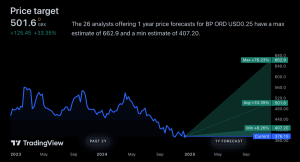Share this page:
Many growth stocks have continued to tear up expectations, blazing a trail throughout the markets in 2021.
In this article, I’m going to cover some of the biggest and best-performing shares in this category and explain what you need to know about including them in your portfolio.
What are the top growth stocks this year?
Many people thought that 2020 couldn’t be topped in terms of wild returns for stocks. But 2021 is shaping up to be another great year.
Amongst the many thousands of companies out there, certain growth shares have really excelled. Here’s a rundown of the top ten holdings right now in the Vanguard Growth ETF (VUG) along with their year-to-date performances:
| Number | Company | Performance (YTD) |
| 1 | Microsoft (MSFT) | 54.04% |
| 2 | Apple (APPL) | 15.96% |
| 3 | Alphabet (GOOGL) | 71.69% |
| 4 | Amazon.com (AMZN) | 11.18% |
| 5 | Tesla (TSLA) | 35.97% |
| 6 | Meta Platforms (FB) | 30.05% |
| 7 | NVIDIA (NVDA) | 127.76% |
| 8 | Home Depot (HD) | 40.89% |
| 9 | Visa (V) | -1.99% |
| 10 | Adobe (ADBE) | 36.08% |
Will these growth stocks continue to perform?
Apart from Visa, every stock in this growth ETF has had a cracking year so far. After two massive years for most of these companies, you might be wondering whether this stellar performance can continue?
When choosing investments, it’s always worth checking the track record of each company, but it’s just as important to realise that past performance doesn’t dictate future results.
Sometimes, when large gains are made, investors then rotate some of that money into more stable shares or income-focused investments. If this happens en-masse, it can lead to a big sell-off in certain growth stocks.
You should also keep in mind that part of the reason many of these shares have been so successful is that they were some of the only firms making money throughout the coronavirus pandemic.
This doesn’t mean we won’t see any more growth. But it’s important not to get complacent. Because if there is a market crash or correction, stocks like these will be hit first and hit hardest.
Should these stocks be a part of every portfolio?
Whether these stocks should be in your portfolio depends on how you choose to invest. If you prefer to buy individual stocks and shares, it’s important not to overload your portfolio with growth companies. This is because although they can help rocket your returns, they can also be a real drag during times of turbulence.
Having plenty of investing years ahead of you probably means you can afford to include a higher number of growth stocks. But if you’re looking to preserve wealth rather than build it, a better idea might be to use these stocks as a piece of your portfolio, instead of making them the whole backbone.
Investing in broad index funds is a good way to get some exposure to these kinds of stocks without putting all your eggs in one basket. So this can be a simple trick to bolster your portfolio’s performance whilst making sure you stay diversified.
What should you know when investing in growth stocks?
Not every growth stock will be a winner and sometimes future performance is already priced in. So it’s worth remembering that these shares can be riskier picks because they often trade at a much higher price relative to how much cash they’re actually bringing in.
If you do want to include these kinds of stocks in your portfolio, it’s well worth using a stocks and shares ISA account. This will protect you from tax on any growth.
Whether you pick growth stocks or more stable investments, always make sure you understand the risks involved. No type of investment is guaranteed to grow in value and you might still get out less than you put in.
Was this article helpful?
YesNo
About the author
George is a writer and qualified financial adviser focused on educating others in personal finance & investing.
Share this page:
Some offers on The Motley Fool UK site are from our partners — it’s how we make money and keep this site going. But does that impact our ratings? Nope. Our commitment is to you. If a product isn’t any good, our rating will reflect that, or we won’t list it at all. Also, while we aim to feature the best products available, we do not review every product on the market. Learn more here. The statements above are The Motley Fool’s alone and have not been provided or endorsed by bank advertisers. John Mackey, CEO of Whole Foods Market, an Amazon subsidiary, is a member of The Motley Fool’s board of directors. The Motley Fool UK has recommended Barclays, Hargreaves Lansdown, HSBC Holdings, Lloyds Banking Group, Mastercard, and Tesco.
This post was originally published on Motley Fool







